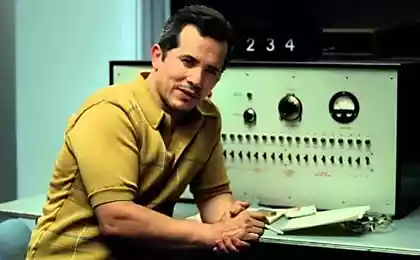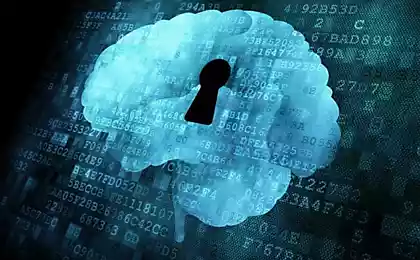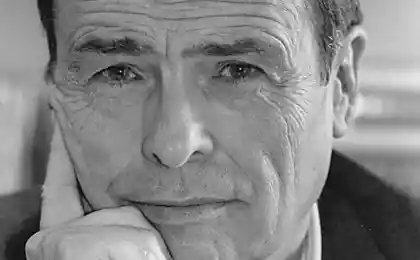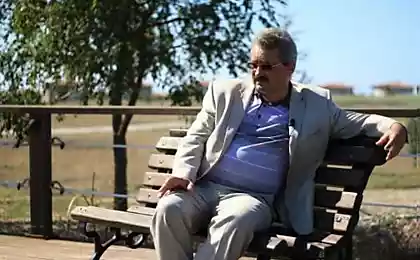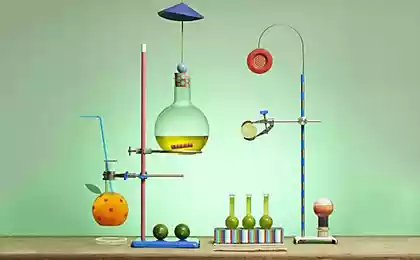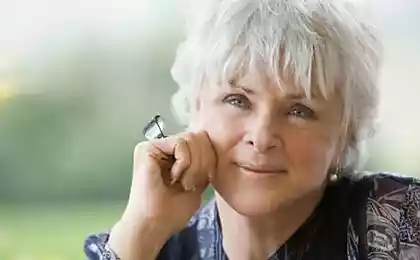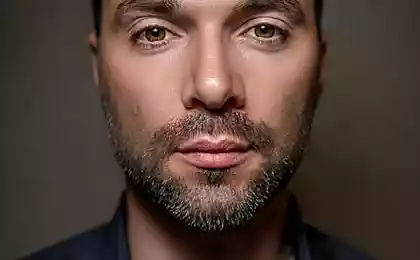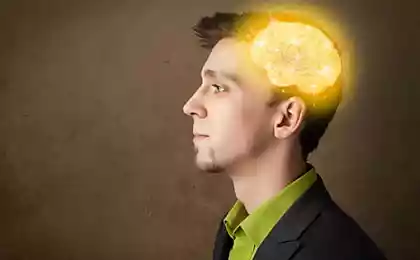551
24 serious scientific questions that need answers
Fifty five million seven hundred eighty thousand five hundred sixty five
Obviously, not everything in this world is clear to us: we examine the space hardly know anything about the bowels of the Earth and the bottom of the ocean; don't know are we alone in the Universe and is there life after death. Find answers to all these questions are millions of people who are obsessed with thirst for knowledge. Here is a twenty-four scientific question posed by the experts his field, in which you can attempt to answer.
How the brain generates consciousness? Mo Kostandi, neurologist:
"Scientists may never explain what consciousness is. But scientists have somewhere to start, if you want to understand how being born with a neurological problem of consciousness — for example, how damage to the brain stem throws people into a coma".
What are the limits of human life and physiology? Kevin Fong, expert on space medicine:
"At this point, when the astronauts travel to the International space station, their stay there is limited to six months because of the effects that microgravity has on the human body. But in March 2015, astronaut Scott Kelly began his one-year stay in orbit. His identical twin, astronaut mark Kelly, will remain on the Ground. NASA hopes that this unique study of twins gives us some clues on how to counteract the detrimental effects of space on our bodies."
Can we replace the damaged part of the brain's computing devices? Wonen bell, writer:
"We have prosthetic limbs, but the "neural prostheses" to replace or extend the damaged brain tissue, do not yet exist due to the extreme complexity of the brain."
What happens when you die? Jane Goodall, primatologist, ethologist, anthropologist:
"There are at least two well understood stages of dying: clinical death, when a person stops breathing and the heart to pump blood, and biological death, when the cells begin to disintegrate and organs, including the brain, stops working. But we don't know anything about what happens after that."
How to solve the problems of cancer, cardiovascular disease and dementia? Annabel Bentley, an expert in the field of health
"We know that a common cancer treatment yet, but search of ways of its treatment in any form is an important task of science and medicine today."
Do we want the question "nature or environment"? David Bradley:
"In other words, how much you affect genes and environmental factors? Some points is due to genetics, like hair or eye color. But others are due to the environment and thus play an important role."
Can you avoid aging? Claudia Hammond:
"In the 20th century, life expectancy has increased significantly, from 45 years to 78 years in the United States. But we grow old with the same speed. Scientists have long thought that aging is the result of damage at the molecular level, accumulating over time, but we really don't know how it happens. And it is unclear if we can ever get it to stop."
Will we be able to predict the future economic, political and other systems? Tim Harford, economist:
"Some economists unable to foresee the problems of individual parts of the financial system before the crisis. But the experiment psychologist Philip Teleca showed that experts are not very good at predicting events in the overall picture of social systems".
9. What is life?
Roger Highfield:
"We know what living beings are distinguished from inorganic matter, but scientists may never know how life appeared and how it started".
How to ensure the best approach to the data in the medicine, how to sort out the mess? Ben Goldacre, doctor, academician:
"We could save lives, if I knew how to use the data of millions of patients, but it seems impossible."
There is a limit to human intelligence and society? Imran Khan, CEO British Science Association:
"The power of the mind can increase if we increase the number of neurons (brain cells) in our brain and their connection. Thus, physical factors can affect how smart we can be — and without that our brain uses 20% of oxygen and calories, is only 2% of body weight. If we have not reached the limit, we see as opportunities for the development of the brain fall, but when?»
Can lab-grown fish to solve the problem with the depletion of the oceans? Ruth Francis, head of communications at BioMed Central:
"Overfishing is a big problem, and the growth of the population it will only become greater. Last year in London ate the first lab-grown Burger. Fish grown in a lab, could solve the problem of world hunger and overfishing in overnight".
What makes us "people", and we know it someday? Alex Krotoski, journalist:
"99% of our DNA is identical to chimpanzees, so what is our difference? Many argue that we're just monkeys with big brains and share with us the fact that our hands allowed us to create literature, art, music, math and science. Perhaps we need to understand the primary reason."
Can the biology to be as universal as chemistry and physics? Ben Miller, actor and Director:
"As far as we know, the laws of physics apply to the entire Universe. Chemistry also seem to be working on distant stars as well as here. But if life originated in another part of the Universe, whether it be based on the same molecules?".
As our bodies recover? Mark Miodownik, engineer and material scientist:
"We know how parts of our bodies, like bones, restore yourself. The more we know, the more you learn to repeat these processes in creating bionic body parts from biomaterials".
As the genome allows the brain to develop the innate talents and abilities, for example, fear of snakes? Steven Pinker, cognitive scientist:
"The experiment shows that if the five-month-old baby holds on average 7 seconds longer looking at images of spiders than to other objects, it indicates a predisposition to see them in a different way. However, as this predisposition is produced, we don't know yet".
Why do people create music? Alan Rusbridger, editor in chief of Guardian Newspapers:
"Some people think that music has evolved because it binds groups of people together, others that helps to attract a mate. There is also an idea that she developed accidentally as a side effect for very different reasons."
Are we alone? Is there life in outer space, and, if so, how much different she is from the earth? Philip Pleyt, astronomer:
"We now know that given the abundance of exoplanets, life probably exists somewhere else in the Universe. But will we be able to communicate with extraterrestrial life or will we find it at all, is another question."
Whether the universe has purpose and meaning? Arianna Huffington, President and editor in chief of Huffington Post Media Group:
(Your guess is as good as mine).
How the brain works and if we can fix it in the event of a problem? James Randerson, editor of the Guardian:
"We know a lot about what is in our brain, and we learn more every time, but there is still a long way".
If you can plunge a person into suspended animation? Frank Swain, writer:
"Many animals hibernate, but as far as we know, people never. However, it would be useful to freeze people in time if we went to serious space travel. One of the problems that we may face, is that animals don't really sleep during the winter hibernation, sometimes they have to "Wake up" to sleep, strange as it sounded".
Will we be able to maintain a stable human population on the planet and to preserve biodiversity? Alice Roberts, Professor and presenter:
"The Earth's population exceeded seven billion people, and although the UN predicts a steady decline in population growth over the next few years, it is expected that by the end of 2050 the total population will be 9.6 billion people."
Is sexuality genetic? Guillaume Vandam:
"A recent study shows that men's sexuality is influenced at the genetic level by at least two chromosomes, although the exact mechanism remains unclear".
What question no one has yet formulated? Here, perhaps, you can give dear readers a chance to dream up on their own.published
Materials buzzfeed.com
Source: hi-news.ru
Obviously, not everything in this world is clear to us: we examine the space hardly know anything about the bowels of the Earth and the bottom of the ocean; don't know are we alone in the Universe and is there life after death. Find answers to all these questions are millions of people who are obsessed with thirst for knowledge. Here is a twenty-four scientific question posed by the experts his field, in which you can attempt to answer.
How the brain generates consciousness? Mo Kostandi, neurologist:
"Scientists may never explain what consciousness is. But scientists have somewhere to start, if you want to understand how being born with a neurological problem of consciousness — for example, how damage to the brain stem throws people into a coma".
What are the limits of human life and physiology? Kevin Fong, expert on space medicine:
"At this point, when the astronauts travel to the International space station, their stay there is limited to six months because of the effects that microgravity has on the human body. But in March 2015, astronaut Scott Kelly began his one-year stay in orbit. His identical twin, astronaut mark Kelly, will remain on the Ground. NASA hopes that this unique study of twins gives us some clues on how to counteract the detrimental effects of space on our bodies."
Can we replace the damaged part of the brain's computing devices? Wonen bell, writer:
"We have prosthetic limbs, but the "neural prostheses" to replace or extend the damaged brain tissue, do not yet exist due to the extreme complexity of the brain."
What happens when you die? Jane Goodall, primatologist, ethologist, anthropologist:
"There are at least two well understood stages of dying: clinical death, when a person stops breathing and the heart to pump blood, and biological death, when the cells begin to disintegrate and organs, including the brain, stops working. But we don't know anything about what happens after that."
How to solve the problems of cancer, cardiovascular disease and dementia? Annabel Bentley, an expert in the field of health
"We know that a common cancer treatment yet, but search of ways of its treatment in any form is an important task of science and medicine today."
Do we want the question "nature or environment"? David Bradley:
"In other words, how much you affect genes and environmental factors? Some points is due to genetics, like hair or eye color. But others are due to the environment and thus play an important role."
Can you avoid aging? Claudia Hammond:
"In the 20th century, life expectancy has increased significantly, from 45 years to 78 years in the United States. But we grow old with the same speed. Scientists have long thought that aging is the result of damage at the molecular level, accumulating over time, but we really don't know how it happens. And it is unclear if we can ever get it to stop."
Will we be able to predict the future economic, political and other systems? Tim Harford, economist:
"Some economists unable to foresee the problems of individual parts of the financial system before the crisis. But the experiment psychologist Philip Teleca showed that experts are not very good at predicting events in the overall picture of social systems".
9. What is life?
Roger Highfield:
"We know what living beings are distinguished from inorganic matter, but scientists may never know how life appeared and how it started".
How to ensure the best approach to the data in the medicine, how to sort out the mess? Ben Goldacre, doctor, academician:
"We could save lives, if I knew how to use the data of millions of patients, but it seems impossible."
There is a limit to human intelligence and society? Imran Khan, CEO British Science Association:
"The power of the mind can increase if we increase the number of neurons (brain cells) in our brain and their connection. Thus, physical factors can affect how smart we can be — and without that our brain uses 20% of oxygen and calories, is only 2% of body weight. If we have not reached the limit, we see as opportunities for the development of the brain fall, but when?»
Can lab-grown fish to solve the problem with the depletion of the oceans? Ruth Francis, head of communications at BioMed Central:
"Overfishing is a big problem, and the growth of the population it will only become greater. Last year in London ate the first lab-grown Burger. Fish grown in a lab, could solve the problem of world hunger and overfishing in overnight".
What makes us "people", and we know it someday? Alex Krotoski, journalist:
"99% of our DNA is identical to chimpanzees, so what is our difference? Many argue that we're just monkeys with big brains and share with us the fact that our hands allowed us to create literature, art, music, math and science. Perhaps we need to understand the primary reason."
Can the biology to be as universal as chemistry and physics? Ben Miller, actor and Director:
"As far as we know, the laws of physics apply to the entire Universe. Chemistry also seem to be working on distant stars as well as here. But if life originated in another part of the Universe, whether it be based on the same molecules?".
As our bodies recover? Mark Miodownik, engineer and material scientist:
"We know how parts of our bodies, like bones, restore yourself. The more we know, the more you learn to repeat these processes in creating bionic body parts from biomaterials".
As the genome allows the brain to develop the innate talents and abilities, for example, fear of snakes? Steven Pinker, cognitive scientist:
"The experiment shows that if the five-month-old baby holds on average 7 seconds longer looking at images of spiders than to other objects, it indicates a predisposition to see them in a different way. However, as this predisposition is produced, we don't know yet".
Why do people create music? Alan Rusbridger, editor in chief of Guardian Newspapers:
"Some people think that music has evolved because it binds groups of people together, others that helps to attract a mate. There is also an idea that she developed accidentally as a side effect for very different reasons."
Are we alone? Is there life in outer space, and, if so, how much different she is from the earth? Philip Pleyt, astronomer:
"We now know that given the abundance of exoplanets, life probably exists somewhere else in the Universe. But will we be able to communicate with extraterrestrial life or will we find it at all, is another question."
Whether the universe has purpose and meaning? Arianna Huffington, President and editor in chief of Huffington Post Media Group:
(Your guess is as good as mine).
How the brain works and if we can fix it in the event of a problem? James Randerson, editor of the Guardian:
"We know a lot about what is in our brain, and we learn more every time, but there is still a long way".
If you can plunge a person into suspended animation? Frank Swain, writer:
"Many animals hibernate, but as far as we know, people never. However, it would be useful to freeze people in time if we went to serious space travel. One of the problems that we may face, is that animals don't really sleep during the winter hibernation, sometimes they have to "Wake up" to sleep, strange as it sounded".
Will we be able to maintain a stable human population on the planet and to preserve biodiversity? Alice Roberts, Professor and presenter:
"The Earth's population exceeded seven billion people, and although the UN predicts a steady decline in population growth over the next few years, it is expected that by the end of 2050 the total population will be 9.6 billion people."
Is sexuality genetic? Guillaume Vandam:
"A recent study shows that men's sexuality is influenced at the genetic level by at least two chromosomes, although the exact mechanism remains unclear".
What question no one has yet formulated? Here, perhaps, you can give dear readers a chance to dream up on their own.published
Materials buzzfeed.com
Source: hi-news.ru
Robert Paul Lanza: Life is an adventure that transcends our ordinary linear thinking
Amazing benefits of dandelion for your health



